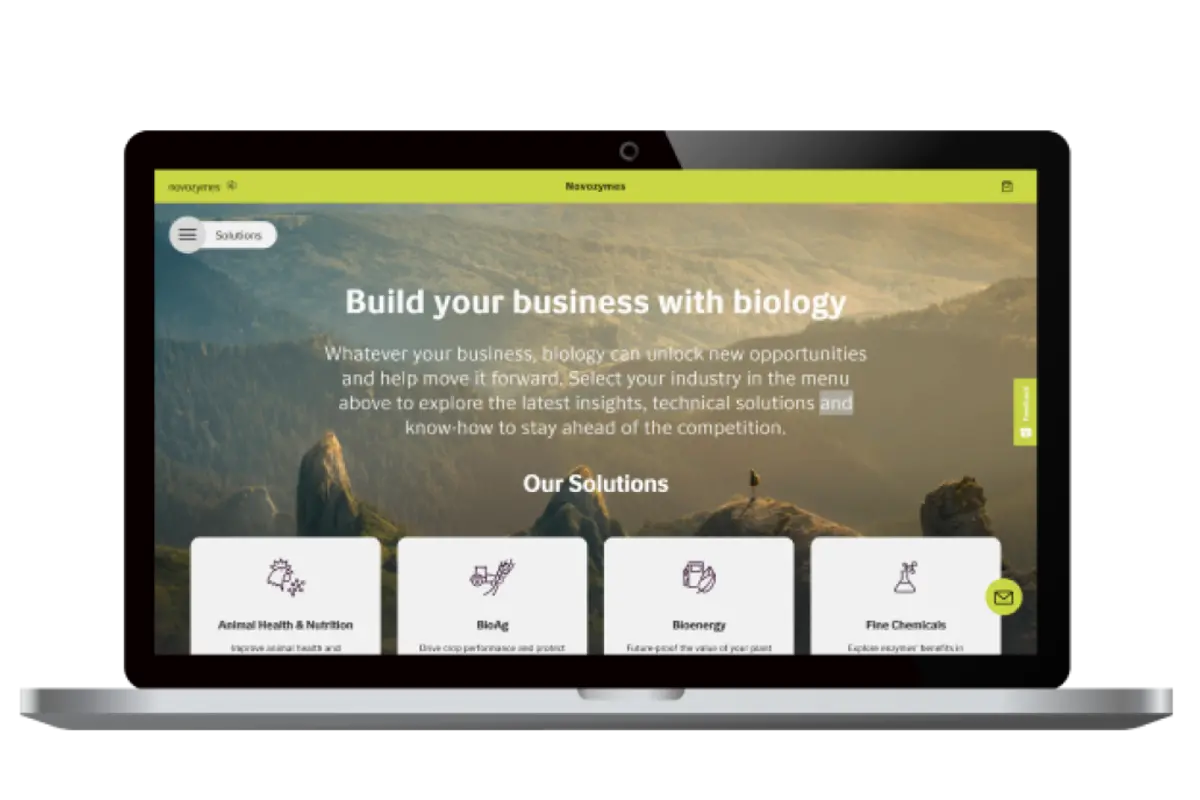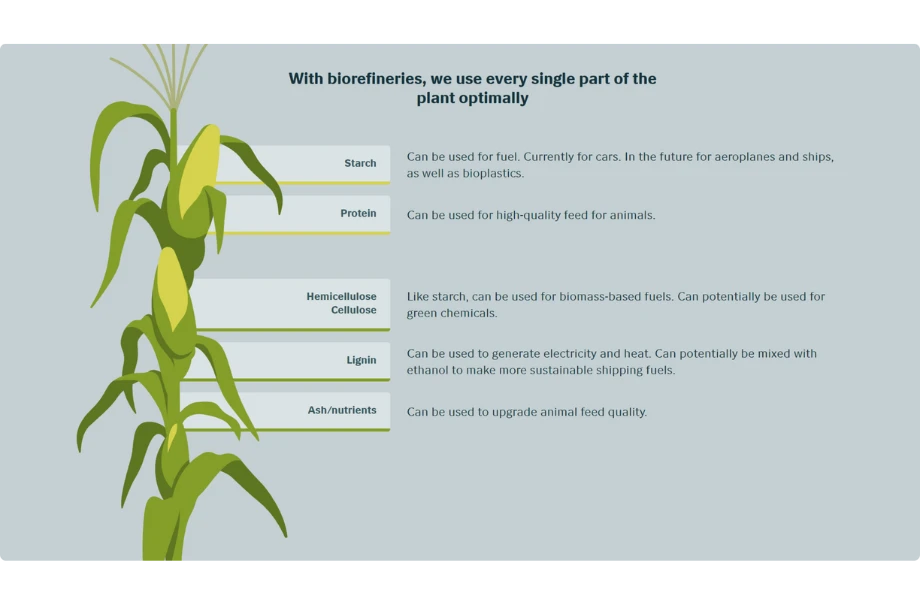
Plugging into the power of plants with biosolutions
Let’s accelerate and Rethink Tomorrow
We are heavily dependent on fossil-based materials
The fossil-based era was one of progress, but at a high price. Fossil-based resources have contributed the majority of the 1.6 trillion tons of greenhouse gases (GHGs) emitted since the start of the industrial revolution. That's led to an average global temperature rise of about 1° Celsius. We are heavily dependent on fossil-based resources in sectors such as transportation, energy and manufacturing. To make our society climate neutral and save our planet, it is imperative that we change this paradigm.
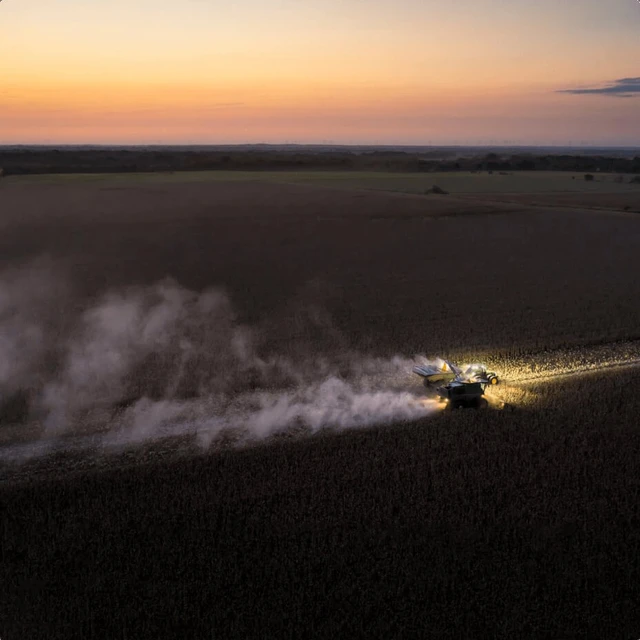
This all adds up to
55 Billion Tonnes
That was the amount of CO2 emitted into our atmosphere in 2021. And the number has not started declining yet. With biorefineries we can reduce emissions from transportation, energy and manufacturing.
Bring on the power of plants
By plugging into the power of plants, we can help bridge the gap to a net-zero future. In fact, according to International Energy Agency analysis, we can’t reach net zero by 2050 without biorefineries. Instead of refining oil, we can refine plants and break our dependence on fossil-based materials. Biotechnology-enabled biorefineries are a here-and-now solution. They're saving millions of tons of CO2 by turning waste and plants into a range of end-products, including low-carbon fuels.
Today, biofuels are primarily used for light-duty vehicles. In the future, the same technology can be used for aviation and marine transport, as well as biochemicals and bioplastic.

And wait, there's more: Making the most of biogenic CO₂ with carbon capture
Biorefineries produce what is known as biogenic CO2. Biogenic CO2 is climate neutral as it comes from plants that have taken carbon from the atmosphere using photosynthesis. But biorefineries can make this carbon even more sustainable by capturing it. Then they can either store it or use it as a raw material for fuels, for example.
But what will the impact be?
"If we want to make climate neutrality a reality, we urgently need to use every tool we have available. That's why biofuels are essential to meeting our netzero ambitions. They're currently one of the most cost-effective solutions for carbon emissions reductions. In the future, biofuels from biorefineries will also help decarbonize heavy-duty transport including marine and aviation, and could potentially even supply other products to support the net-zero journey, including biochemicals and high value protein feed."
Hans Ole Klingenberg,
VP, Marketing Industrial Biosolutions

How do enzymes, yeasts and microbes work in a biorefinery?
Biotechnology-enabled biorefineries process organic material into fuel, power, heat, feed, and other valuable compounds. Enzymes turn starch and cellulosic materials into sugar. These sugars are the basis for many valuable end products. Once fermented by yeast into alcohol, they’re also the basis for biofuels.
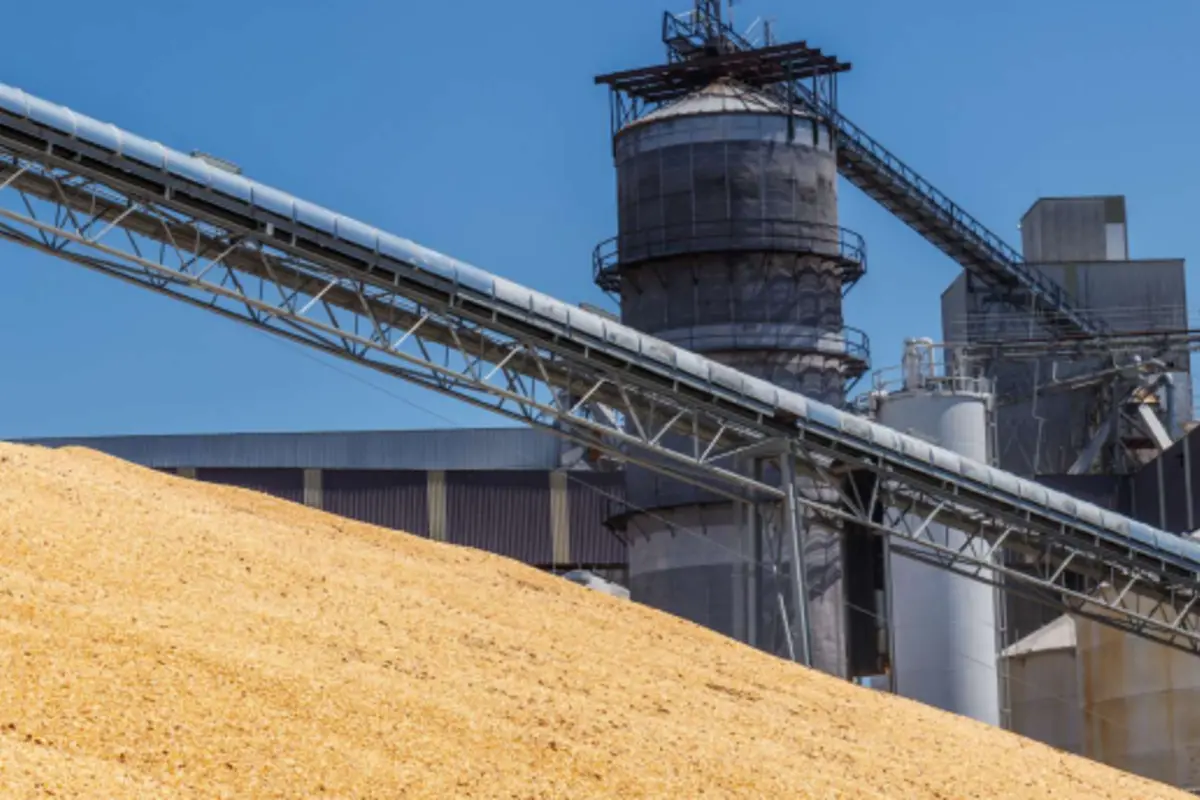
Decarbonizing the globalmaritime industry
Carbonic anhydrase replaces chemicals in CCUS, capturing millions of carbon dioxide molecules every second and turning them into carbonate. Like conventional CCUS, the enzymatic process can capture more than 90% of CO2 emissions from flue gas. But enzymatic CCUS is more affordable, sustainable and convenient for many factories.
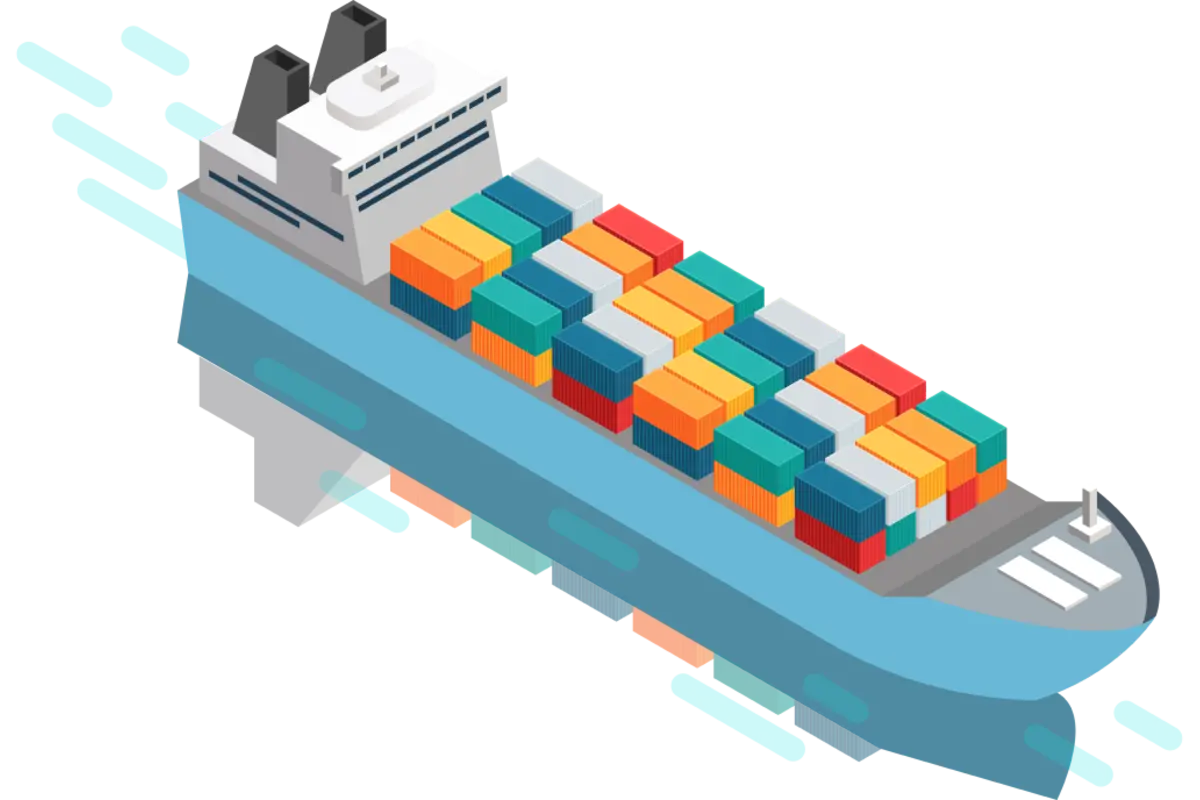
Want to learn more about enzymes?
